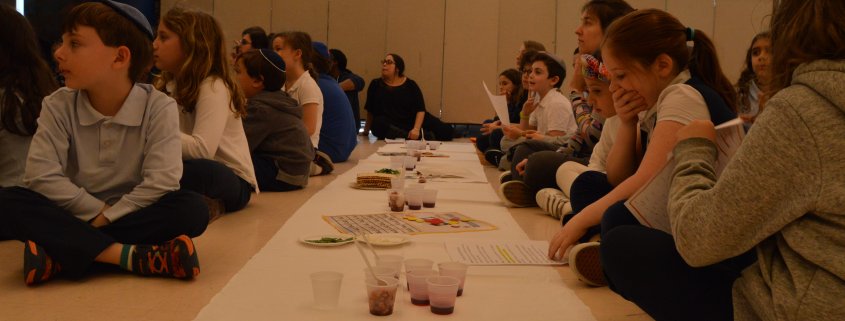Menschlichkeit in a time of Social Distancing
Today is Rosh Chodesh Nisan, the first day of the Jewish month of Nisan. According to Mishnah Rosh Hashanah (1:1) Nisan is the first month of the year for counting the regalim, the three pilgrimage festivals of Pesach, Shavuot, and Sukkot. During the time of beit hamikdash, the Temple in Jerusalem, each of the regalim was an annual celebration, when Jews from around the world gather to worship God together. Gathering together is what Jews have always done- in families, communities, and, on pilgrimage festivals like Pesach, as a whole people.
This rosh chodesh is surely different than any I have experienced before, as we plan for Pesach without extended family gatherings or communal celebrations. The spread of COVID-19 has restricted our ability to gather with others, and as we near the end of two weeks physically separated from each other, I am thinking about the impact of the COVID-19 pandemic on our relationships with other human beings. In this environment, contact with other people can be dangerous, and that can make everyone else seem scary. Forget gathering with throngs of pilgrims in Jerusalem, or sitting shoulder to shoulder with family at crowded seders– we are worried about interactions with even one other person.
I believe that the upcoming Pesach holiday compels us to resist this fear and take action to nurture relationships with other people, albeit without being in the same physical space. A fundamental lesson of Pesach is to care for others, not only our close family and communities that we usually celebrate with, but those in society most at risk. Reliving the Exodus at our seder each year is an expression of our national memory of oppression, when we were once slaves. The essential imperative that derives from that memory is to treat other people with kindness. As we read over and over in the Torah:
שמות כג:ט
וְגֵ֖ר לֹ֣א תִלְחָ֑ץ וְאַתֶּ֗ם יְדַעְתֶּם֙ אֶת־נֶ֣פֶשׁ הַגֵּ֔ר כִּֽי־גֵרִ֥ים הֱיִיתֶ֖ם בְּאֶ֥רֶץ מִצְרָֽיִם׃
You shall not oppress a stranger, for you know the feelings of the stranger, having yourselves been strangers in the land of Egypt. (Exodus 23:9)
To live out this value of caring for others, we must find ways to sustain nurturing and positive relationships with other people, especially in this time when we can not be physically together. Here are a few thoughts about how we might try to do that.
See and acknowledge other people. When we were able to gather in the Schechter Manhattan school building, it was always important to me that every member of the community felt seen and valued. So I tried really hard to smile and say hi to everyone I passed in the hallway, and I encouraged others to do the same. Living in our big city, we are accustomed to walking past each other without acknowledgment. While we probably can’t say hi to everyone we pass on crowded streets, this feels like a moment to bring a little of the menschlichkeit from the halls of Schechter Manhattan out into the world. When we pass someone on the street or in the park, while we are out getting some fresh air and exercise, we should stay six feet away from them, and we can also smile and say hello. We can take a moment to see the humanity of all the people sharing these difficult times with us.
Reach out to friends and family. My extended family- parents, siblings, nieces, nephews, cousins- have taken to scheduling a weekly video conference gathering. These have been truly beautiful moments of catching up, sharing our love for each other, and feeling connection to our family. Creating times for social interactions, and virtual gatherings, is helping me to strengthen those important relationships. The stronger those relationships are, the more I am reminded that people are not scary, COVID-19 is. I am also reminded to reach out friends I have not spoken to, and take the time to make a call. This is a moment to let others know we are thinking of them and that we care.
Help people who are vulnerable. The other day my friend, who is a rabbi, told me about elderly members of his congregation who are homebound and alone, people who are sick, and others who are food insecure. You may know people in your community who need extra support, by way of bringing them food or supplies, even dropping it at their door. We can practice caring by seeking ways to help. Or, we can take this moment as an opportunity to support organizations that are working through the COVID-19 outbreak to help the most at-risk members of our communities. Three very worthwhile organizations are the West Side Campaign Against Hunger, UJA Federation of New York, and Leket Israel.
This is surely not an exhaustive list of ideas, but I hope it inspires you to do some things to care for others in the days ahead. We want to make sure that our children and students know that being in relationship with people is not something to fear. It is a responsibility and a blessing.
Chodesh tov!



